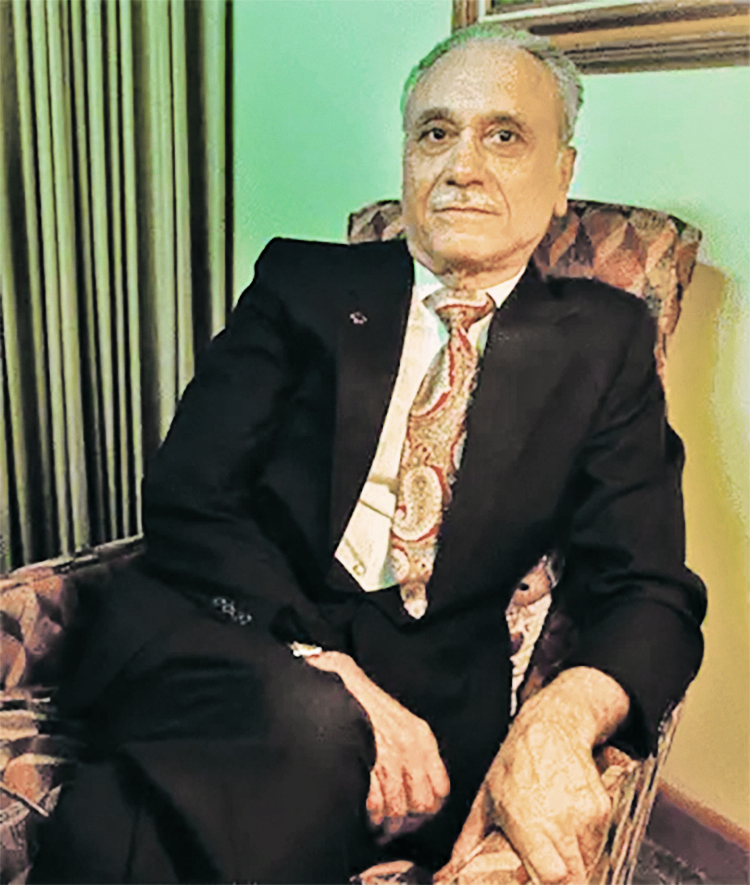By Shawn Nowlin

Prominent dentist and activist Dr. Walter Claytor dies at 98
In her poem “When Great Trees Fall” Maya Angelou starts by saying “When great trees fall, rocks on distant hills shudder, lions hunker down in tall grasses, and even elephants lumber after safety”. On the first day of the New Year in the early afternoon, a tree fell on Grayson Avenue in Roanoke. Dr. Walter Spears Claytor passed away at the fulfilling age of 98 years old. Born December 18, 1925, to Dr. John B. Claytor Sr., and Roberta Woodfin Claytor and he was one of eight children. Dr. Claytor was very proud of being a Claytor. He often spoke about the legacy his family had left.
His mother and father were two of his greatest inspirations and he spoke very highly of them. He spoke about how his mother reared him and his siblings and took care of the family. Roberta Claytor was the inspiration behind the Claytor Memorial Clinic which would become their family-owned clinic and where Dr. Walter Claytor would create a lasting legacy with his father and three brothers.
His father was a founding member of Burrell Memorial Hospital and encouraged young Walter that whichever profession he went into it should be about helping his people and not making money. Dr. Claytor said in an oral history with the Gainsboro library in 2006 “At 4 pm each day mama made sure we were home waiting on my dad to come home from the hospital for dinner. Then my dad would go back to work”.
At the age of 22, Walter Claytor became Dr. Walter Claytor received his doctorate with honors graduating fourth in his class in 1948. The following year he joined his father and brothers at their newly opened family-owned medical clinic in Gainsboro. In 1951, Dr. Claytor entered the military and served as Captain in the Alaskan Air Command. While in the military he met his wife Eiko Kimura. Eiko was a nurse who worked with him in Alaska. Walter and Eiko became husband and wife on May 12, 1954. Eiko Claytor in 1958 became the Burrell Memorial Hospital-Lucy Addison High School of Practical Nursing Schools’ first clinical instructor. They had three children Kaye, David, and Mark.
In 1957, Dr. Claytor became a member of the Burrell Memorial Hospital Board. He would serve on this board for 14 years in many different roles. He served as administrator, a trustee, and board chairman. During this time Walter and two of his brothers Drs. Frank and John Jr both worked at Burrell Hospital and the family clinic. In 1970 Governor Linwood Holton appointed, Dr. Claytor to the Virginia Board of Examiners for a 5 year term. His time spent on the board played a key role in what is now known as the Southern Regional Testing Agency which includes Arkansas, Kentucky, Virginia, and Tennesee.
Dr. Claytor worked for decades to ensure that all people received proper and affordable healthcare but he also fought for the rights of land owners. In the 1970s, the Roanoke Redevelopment Housing Authority declared a one-acre piece of land owned by the Claytor family in the early 1920s in the Gainsboro neighborhood as blighted. This allowed the RRHA to keep the property under the threat of condemnation using eminent domain. In 1998 Dr. Claytor was notified by the RRHA that they no longer were looking to acquire his family’s property. According to Dr. Reginald Shareef, “the 23-year condemnation of the Claytor property was the longest inverse property taking in the history of the United States.”
So representing the Claytor family in 2001, Dr. Walter Claytor filed a lawsuit against the RRHA claiming that the threat of condemnation hurt his family’s ability to rent the Clinic space. In 2005 a court ruled that the Claytor family deserved compensation for this unjust condemnation. This was the first of such cases brought in the Commonwealth of Virginia. Dr. Shareef was an expert witness in the case for the Claytor family he also stated, “Dr. Claytor’s heroic efforts to “speak truth to power” resulted in a historic legislative/public policy victory in the Virginia legislature and landmark judicial legal victory that continues to positively impact all Virginia property-owners.”
Mary Bishop former Roanoke Times Journalist and longtime friend of Dr. Claytor said “Dr. Claytor always longed to bring back the togetherness the Gainsboro community once had.” In sum, Dr. Sharef described Dr. Claytor and that generation perfectly “Dr. Walter Claytor came from a generation of Black leaders who were known for their “quiet excellence”; that is, they understood that Black leaders could most effectively challenge institutional racism in America by understanding both political processes and constitutional rights. Hence, most of their efforts were behind the scenes, calling on white political and business leaders to live up to the tenets of the U.S. Constitution when dealing with African Americans and other minorities. This approach has been the catalyst for the tremendous social change experienced by African Americans and other minorities in the U.S. over the past 50 years.”





